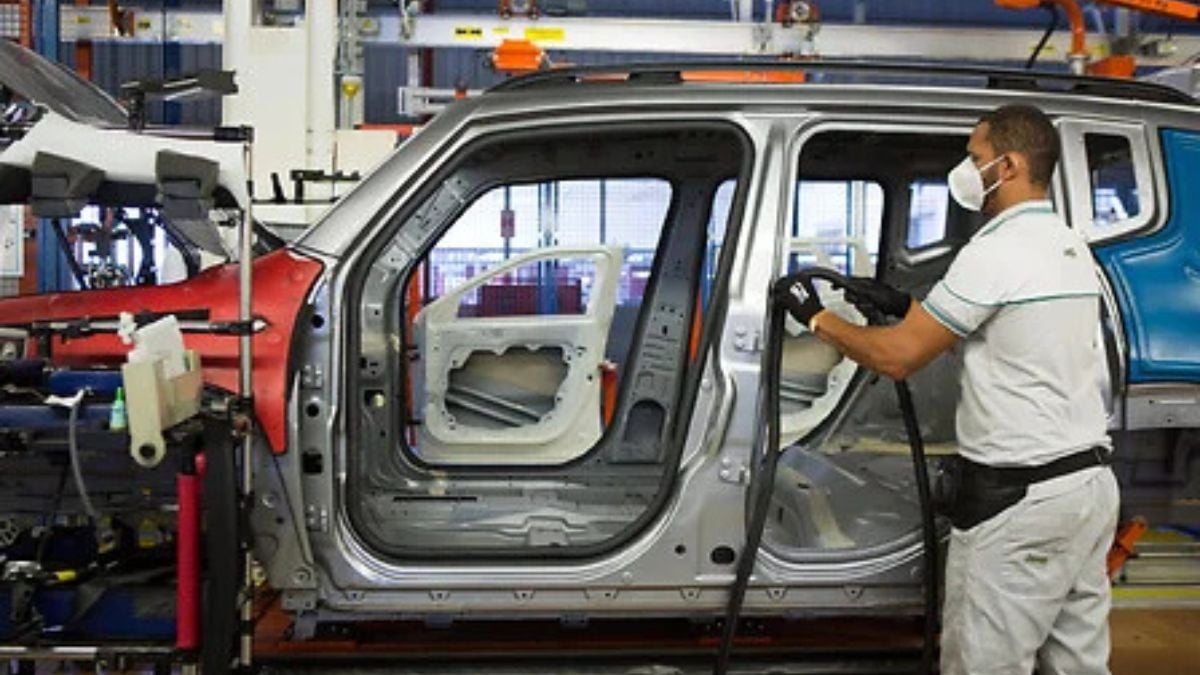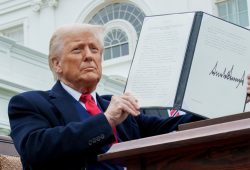
The automotive group Stellantis announced that, due to tariffs imposed on the sector by U.S. President Donald Trump, it will temporarily suspend operations at its factories in Canada and Mexico. The company stated that these tariffs are already having a negative impact on the activities of the entire automotive industry.
When will Stellantis suspend its operations in Mexico and Canada?
According to Stellantis, which manufactures the Jeep and Ram brands, activities at the Windsor plant in Ontario, Canada, will be suspended starting next Monday, April 7. Regarding its plant in Mexico, the company has not provided further details.
“Immediate actions must be taken, including the temporary halt of production at some of our Canadian and Mexican assembly plants, which will impact several of our motor axle and stamping facilities in the United States,” Stellantis said in a statement.
ALSO READ What happened to Hailey Okula and what is amniotic embolism?
Stellantis stock falls
Following Stellantis’ announcement, the company’s U.S. shares fell by 2.2 percent. The suspension of operations is expected to affect about 4,500 employees.
What cars does Stellantis manufacture?
Stellantis manufactures cars under the following brands:
- Abarth
- Alfa Romeo
- Chrysler
- Citroën
- Dodge
- DS Automobiles
- Fiat
- Jeep
- Lancia
- Maserati
- Opel
- Peugeot
- Ram
- Vauxhall
Trump imposes tariffs on cars
On Thursday, April 3, the 25 percent tariffs on car imports, imposed by President Donald Trump, came into effect. Additionally, it is expected that, within a month, on May 3, the U.S. president will also impose tariffs on auto parts imports.
According to S&P Global Mobility, 16 million new cars were purchased in the U.S. in 2024, of which nearly 50% were imported. Mexico is the country that exports the most cars to the U.S., with 2.5 million units. Canada is second, with 1.1 million, followed by countries like South Korea, Japan, and Germany.
How will the tariffs affect car buyers?
The implementation of tariffs will lead to an increase in manufacturing costs, which will result in a reduction in car production and a rise in the prices of vehicles due to supply and demand dynamics.
Furthermore, once tariffs are applied to auto parts, the cost of car production will increase even more, even in U.S. factories. This is because all vehicles manufactured in the country use imported components.
ALSO READ Dunkin’ adds new items to its spring menu! What are they?
What tariffs has Donald Trump imposed?
Since returning to the White House for his second term as U.S. president, Donald Trump has signed executive orders to apply various tariffs to his trading partners. These include:
- 25% on all products from Mexico and Canada
- 10% on Canadian energy
- An additional 10% on Chinese products
- 25% on steel and aluminum imports
- 25% on all foreign-made cars and auto parts
What are tariffs and how are they applied?
Tariffs are taxes applied to products imported from foreign nations. This tax, paid to the government, is the responsibility of the company that brings the foreign goods into the country. However, some companies may choose to pass on all or part of this cost to their customers.
Why is Donald Trump imposing tariffs?
President Donald Trump has stated that tariffs are a key component of his economic strategy, as he seeks to promote manufacturing in the U.S., protect jobs, increase tax revenues, and stimulate economic growth.
Trump aims to revitalize and rebuild the U.S. manufacturing industry, which has lost many jobs over the past 40 years, largely due to the transfer of these jobs to countries with lower wages, such as Mexico or China. Additionally, the president believes that the U.S. is facing a significant trade deficit and that other nations are taking advantage of the opportunity to sell their products to U.S. consumers.









